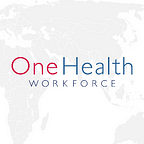Optimizing Nursing Capacity Crucial for Battling Tuberculosis
One Health Profile
Dr. Astuti Yuni Nursasi, a lecturer at Universitas Indonesia’s Faculty of Nursing, received a travel grant to participate and give a presentation during a recent international conference on health care quality in Chiang Mai. She also talked to the SEAOHUN about empowering communities and families in the fight against tuberculosis in Indonesia.
Having been a lecturer for 22 years, Dr. Astuti Yuni Nursasi always believes that education and experience leads to self-improvement and professional development. She never stops learning new things, especially about family nursing and tuberculosis — her two areas of expertise.
Up to 322,806 new tuberculosis cases were reported in Indonesia in 2014 according to the World Health Organization.
“Tuberculosis has become my concern because it’s still a big health problem in the world and in Indonesia. If I did not do any action as a nurse to start controlling TB, I would be considered irresponsible,” she said.
Up to 322,806 new tuberculosis cases were reported in Indonesia in 2014 according to the World Health Organization. In the West Java province of Depok where her workplace is located, up to 1,110 patients were diagnosed with tuberculosis.
Realizing how widespread tuberculosis was in her community, the long-time nurse became interested in the infectious disease and the role of nurses to contribute in community development. Dr. Yuni also furthered her masters and doctorate studies, which enabled her to develop a model for tuberculosis care.
A total of 108 tuberculosis patients in 15 sub-districts of the Depok community were targeted for her research. Half of the patients in six sub-districts were identified as an intervention group, while the patients living in the nine other sub-districts were categorized as a control group to compare results.
As part of her research, handbooks with instructions on tuberculosis care, including diagnosis, treatment, and public health care were distributed to nurses, community health workers, families, and the TB patients . A team of nurses and community health workers also visited tuberculosis patients at their residences once or twice a week in order to monitor and follow up on self-care and medication routines among the patients and family members at risk of contracting the pulmonary disease.
Results after the completion of 10 visits to six tuberculosis-monitored sub-districts showed an increase in the number of patients who were able to correctly conduct tuberculosis care routines by themselves, thanks to her newly-established communications between nurses, community health workers, and families of the TB patients.
This research was carried out as part of her doctoral dissertation on the topic, “Effectiveness of Nurses, Community Volunteers, Families and Clients’ Empowerment to Improve Pulmonary Tuberculosis Client Independence for Self-care” and garnered international recognition for Dr. Yuni. She also worked with the International Council of Nurses and became a board member of the Indonesia Association Against Tuberculosis to collaborate with authorities, health professionals, and communities in a bid to reduce TB cases in the community.
Full of eagerness to learn new things, the 45-year-old academic accepted that finding resources that enabled her to expand One Health knowledge essential for her nursing professional development was challenging. Despite receiving acceptance to give a presentation on her work at the “Optimizing Healthcare Quality: Teamwork in Education, Research and Practice” conference held by Chiang Mai University’s Faculty of Nursing in Chiang Mai, Thailand. She was not certain if she would be able to join, due to the lack of funding support.
“My financial situation has not yet been recovered after my PhD study, so I just pray and pray,” she said, adding that she would depend on her husband’s income as the last resort for a trip to Thailand.
Her prayer was answered when her colleague who works at the Indonesia One Health University Network, in coordination with SEAOHUN, emailed her about the availability of travel grants provided by the South East Asia One Health University Network. She did not hesitate to apply for the grant and included the abstract of her study for the panelists’ consideration.
It did not take long for her to receive the good news. She insists that participating in the conference gave her a valuable opportunity to learn how to make an inter-collaborative nursing research and study.
“Like One Health, we have to work together with other professions to improve health for all,” she said.
About the Author
Apiradee Treerutkuarkul is a communications specialist with the South East Asia One Health University Network (SEAOHUN), a network supported by the USAID One Health Workforce project.
